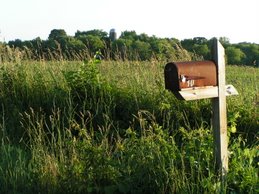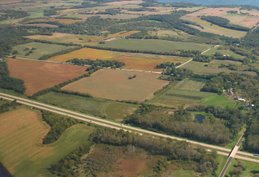Rosanne Lindsay's testimony from Aug. 7th Public Hearing:
[Most content from Letter to the Editor which appeared in the Fitchburg Star on Aug. 9, 2007.]
I’d like to talk about something that links all of us on the issue of Smart growth and growth boundaries, and that is the water.
The term water shortage has become a buzzword in Fitchburg this summer with two warnings from the city, including one mandatory warning, announcing water restrictions that limit yard sprinkling. Perhaps the water restrictions are due to increased growth in the area, or drought conditions, or both.
But as the city warns current residents to limit water usage on one hand, they are also moving to allow increased growth to our outlying rural corridor through the Urban Growth Boundary proposal. The approval of the Growth Boundary would pave the way for the approval of the NE Neighborhood development which would bring in thousands of new residents and hundreds of new businesses. It might also require siting a new municipal high-capacity well, diverting more water out of the ground.
Why would the city risk expanding our resident base, as sprawl, knowing that water shortages around the state are generating heated arguments about our current water supply?
For example, the city of Waukesha, known for overdevelopment and sprawl, still struggles to gain access to clean drinkable water even as they plan for new development (they drink radium-contaminated groundwater). Recently, a Waukesha developer and the utility proposed annexing Town property to sink two new heavy pumping wells near the 4600- acre Vernon Marsh Wildlife area to gain access to clean water for 200 new homes. But opponents to this plan convinced the Common Council to vote against it, saying they should halt new development so that they could live with their existing water resource.
Is this a novel idea whose time has come? Halt development and annexation in favor of conservation? More locally, the Village of Oregon Board and Planning Commission recently stopped annexing residential property due to concerns that the village has too many vacant residential lots.
I read, more often now, that developers are seeking to build closer to rural environmental corridors, wetlands, marshes and lakes, not only because they are often the only areas left to develop, but also because they are areas with a ready source of water.
The plan to chop up the open space of the Northeast neighborhood and cover it in asphalt is no different. But it doesn't have to happen. There are plenty of opportunities within Fitchburg's city core for infill development using existing wells that would lessen the impact on the flowage to Lake Waubesa's ecosystem. Further, why take away our access to highly fertile farmland, forest, and wetlands, surrounded by protected lands and parks that represent Fitchburg's unique rural, environmental corridor?
If current drought conditions should persist as a predictable summer occurrence then shouldn't we be cautiously planning our future growth to ensure that there will be enough water to sustain current residents? If future droughts continue to affect the levels of our area lakes, how will new high-powered wells for thousands of future residents from elsewhere help us to sustain our current water needs?
In considering the expansion of the Urban Growth Boundary, city planners and council members should explain how sprawl development would not sap city resources, spend more taxpayer dollars, and short our water supply in the process.



No comments:
Post a Comment